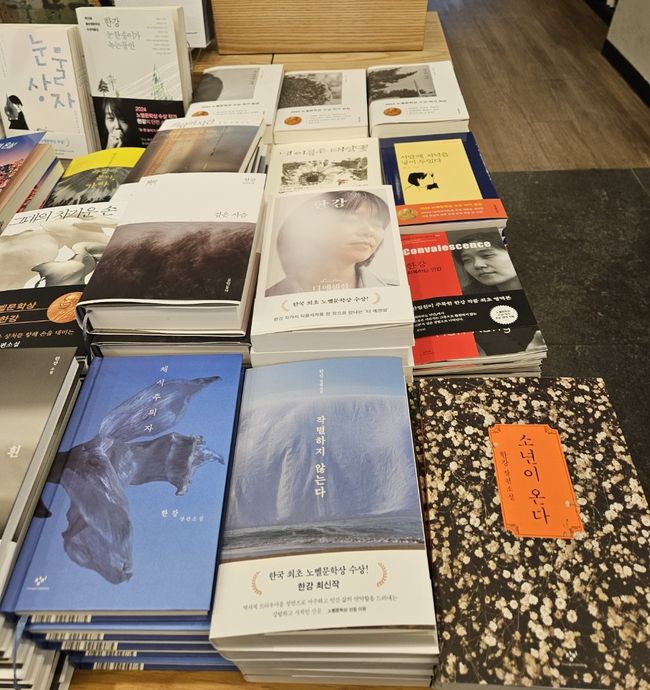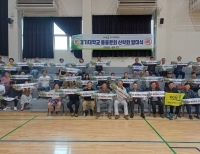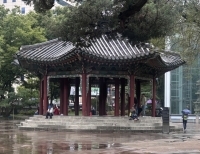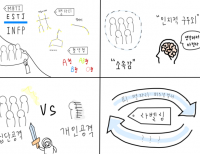The reality that the amount of reading in Korean society is gradually decreasing is not just a change in leisure activities, but also reflects a declining social interest in literature and the arts. As digital culture spreads, modern people who are accustomed to short writings and video content are increasingly distancing themselves from deep reading. In this context, the dream of Korean literature making a global leap, such as winning the Nobel Prize in Literature, may seem even more challenging. The main reasons for this difficulty are the language barrier and the low global recognition of Korean literature. For literary works written in Korean to deeply resonate with readers worldwide, excellent translations and a supportive global publishing system are essential, but these are still lacking. Han Kang’s Nobel Prize in Literature is an important example of overcoming these challenges, showing that Korean literature can be recognized on the world stage. Her works and literary achievements carry deeper significance.
Han Kang, born in 1970, began her literary career in earnest in the late 1990s, establishing herself as an important writer in Korean literature. She is known for her deep exploration of human nature and social issues, portraying human loneliness, wounds, and social oppression with delicate detail in her works. Through these themes, Han Kang highlights the essence of humanity and evokes deep empathy from readers. One of her most notable works, The Vegetarian, delves into human nature and violence, exploring the dark side of human nature through the conflicts and changes that arise when the protagonist refuses to eat meat. This work left a strong impression on readers worldwide with its delicate descriptions and unique narrative structure. Another significant work, Human Acts, deals with the pain of modern Korean history, focusing on the stories of those who suffered during the 1980 Gwangju Uprising. Through this historical event, the novel deeply explores personal wounds and the collective pain of the community, delivering a powerful emotional impact to readers.

Han Kang’s works offer deep reflections on social violence and human wounds, providing insights into societal change. Her literary depth and the beauty of her language have earned her widespread critical acclaim, and these qualities are considered major reasons for her Nobel Prize win. The news of Han Kang’s Nobel Prize win created a significant stir in Korean society. Many felt proud that Korean literature had reached a global level through her award, and it sparked increased interest in literature. Her award encouraged readers to revisit her works and reflect on society and humanity through literature. Internationally, Han Kang’s win also drew significant attention. Foreign readers praised the way her works depicted the complexity of the inner world and oppression, resonating universally. Han Kang’s literature transcended language barriers and moved readers around the world, creating a profound international impact with her literary world.
Like this, Han Kang’s Nobel Prize surprised not only Korea but also the entire world. Above all else, online and offline bookstore sales increased by 39.8% during the week after she was awarded the Nobel Prize in literature. Demand for her works, as well as other Korean authors’ works rose and were frequently out of stock abroad. It became a catalyst for reviving the book market and for Korean literature to receive a lot of attention. Han Kang’s influence doesn’t stop there. When she directly mentioned songs in an interview, those songs rose again on the music charts. ‘K-literature’ has followed the trends set by K-pop, drama and food, and now K-culture’s global influence has grown even more. Also, it is a chance to remind readers of the historic background of the events in her novels.
We can see that the power of her Nobel Prize has spread to literature, the economy, culture, the entertainment business, and even politics. Currently, her masterpieces have been published in a total of 28 languages throughout the world. This means that it has gotten much easier to surmount the Korean translation barrier. It has become an indicator that Korean literature is growing and we can expect the position of korea in the world to expand. Han kang’s works are placed in the central library on campus. With the chance to directly encounter her works, hopefully we can all feel this historic moments.
81st Reporter•AN KEUM HYUN•angeumhyun1@gmail.com
82nd Cub Reporter•LEE JEONG MIN•agaoo1@naver.com
- TAG
-
 Freedom Given to Youth: An Opportunity for Choice or a Burden of Constraint?
“Are we truly free today?” Classical literature is far more than time-honored stories. It offers profound insights into human nature and society that transcend time, remaining a valuable resource for examining the challenges our world faces today. This article will draw on George Orwell’s 1984 and Charles Dickens’ Oliver Twist to explore the contemporary issues of youth housing and the emergence of a surveillance society ...
Freedom Given to Youth: An Opportunity for Choice or a Burden of Constraint?
“Are we truly free today?” Classical literature is far more than time-honored stories. It offers profound insights into human nature and society that transcend time, remaining a valuable resource for examining the challenges our world faces today. This article will draw on George Orwell’s 1984 and Charles Dickens’ Oliver Twist to explore the contemporary issues of youth housing and the emergence of a surveillance society ...

 [단신] 산악회, 본교 동문의 버팀목이 될 수 있도록
[단신] 산악회, 본교 동문의 버팀목이 될 수 있도록
 [사회메인] 노인 인구 1,000만 시대, 준비 없는 사회가 불안해
[사회메인] 노인 인구 1,000만 시대, 준비 없는 사회가 불안해
 [네컷만화] 라벨링 문화
[네컷만화] 라벨링 문화
 [진리터] 결국 우리 모두 돌아볼 것이니
[진리터] 결국 우리 모두 돌아볼 것이니

 목록
목록











